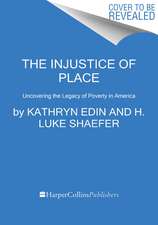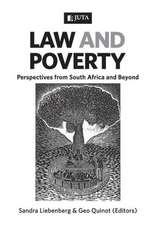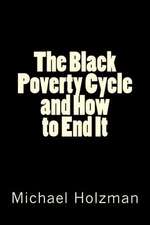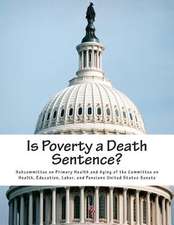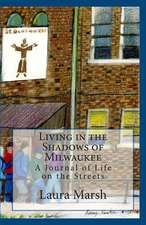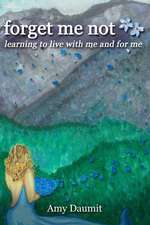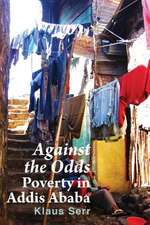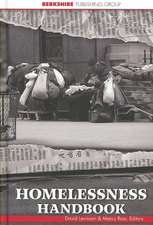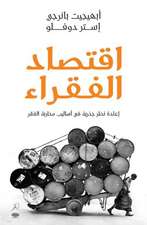The Shame Game: Overturning the Toxic Poverty Narrative
Autor Mary O'Haraen Limba Engleză Paperback – 26 feb 2020
Preț: 97.70 lei
Nou
Puncte Express: 147
Preț estimativ în valută:
18.69€ • 19.57$ • 15.47£
18.69€ • 19.57$ • 15.47£
Carte disponibilă
Livrare economică 17-31 martie
Livrare express 28 februarie-06 martie pentru 31.48 lei
Preluare comenzi: 021 569.72.76
Specificații
ISBN-13: 9781447349266
ISBN-10: 1447349261
Pagini: 232
Dimensiuni: 140 x 216 x 28 mm
Greutate: 0.52 kg
Ediția:1
Editura: Bristol University Press
Colecția Policy Press
ISBN-10: 1447349261
Pagini: 232
Dimensiuni: 140 x 216 x 28 mm
Greutate: 0.52 kg
Ediția:1
Editura: Bristol University Press
Colecția Policy Press
Notă biografică
Mary O’Hara is a journalist and the author of Austerity Bites. She writes for a number of outlets, including the Guardian and Mosaic Science.
Cuprins
PART I : The inconvenient truth: poverty is real A short prologue Introduction 1 Who are these ‘poor’ people anyway? Being on the breadline in Britain 2 What? There are poor people in the richest nation on earth? PART II: Turning the screw on poor people: shame, stigma and cementing of a toxic poverty narrative 3 A twisted tale: evolution of a the poverty narrative 4 Lights, camera, vilification: the narrative in action 5 The games we play: weaponising the narrative 6 Shame on you: making the toxic narrative stick PART III: Flipping the script: challenging the narrative war on the poor 7 Feeling it: the truth about living in poverty 8 Changing times: fighting poverty, not the poor 9 New generation: young people writing their own script 10 Altered images: constructing a new narrative
Recenzii
“The Shame Game illuminates the disparagement that the poor confront in a prosperous America. . . [and] points to our collective need for better social supports, including cheaper medical care, improved access to education and even periodic government cash giveaways through programs like universal basic income. . . . As O’Hara puts it: “There is a long history of the poorest being shunned and shamed and ‘kept in their place,’ but there is also a history of these practices being challenged with genuine successes. . . . Ultimately, finding solutions to poverty, including ending the blaming and shaming of the poorest among us, rests with all of us.””
“A necessary book in divisive times.”
“It is rare that the central argument of a book is so eerily transformed by events. If it had not been for the coronavirus, Mary O’Hara’s The Shame Game would have been respectfully received and tidily shelved alongside several other stringent assessments of the ugly politics of austerity. . . . In our new world, this reads less a study of them and us, than potentially a book about us all.”
“A welcome addition to all those who reject the ‘toxic poverty narrative’. . . . Detailed, hard-hitting and thoughtful. . . . We need books such as The Shame Game to remind ourselves that being poor is not a self-choice but something that is inflicted by those who hold the levers of power and wealth.”
“O'Hara sees the potential of talent and magic in every kid and every adult. This book explores the absolute travesty of blaming each other.”
“In a time of extreme social and economic division, O'Hara lifts the lid on who truly benefits from keeping us divided and how we can flip the script of poverty to make a fairer society for all. A powerful and important book.”
“Rich people should be required to read this book and poor people should be allowed to. I have rarely seen a more broad and beautiful picture of people who have done more with less than this book. O’Hara has woven a rich tapestry of joy and terror and talent and lost opportunities and the picture she draws is the most comprehensive description of poverty I’ve seen yet.”


